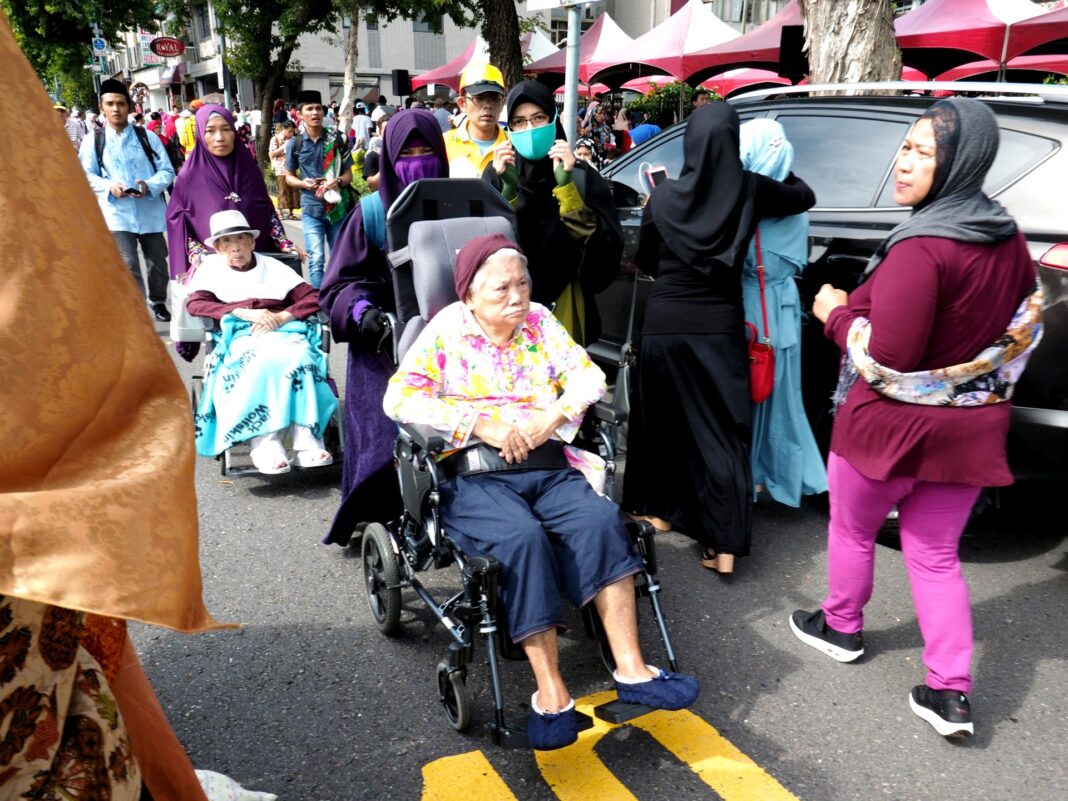Taipei, Taiwan – As Taiwan’s President William Lai Ching-te begins his four-year term, the democratic island’s legions of Southeast Asian migrant domestic workers are hoping he will push ahead with labour reforms that might improve their working lives.
According to Taiwan’s Ministry of Labour, there were more than 760,000 foreign workers on the island as of the end of March, most of them from Indonesia, the Philippines and Vietnam.
Many work in manufacturing and construction, but they also look after the elderly in healthcare facilities as well as in private homes – a key role considering Taiwan’s rapidly ageing society.
While Taiwan’s monthly minimum salary was increased to 27,470 New Taiwan dollars ($853) this year, migrant domestic workers, who also have to pay expenses related to their recruitment, were excluded.
Bonny Ling, the executive director of Work Better Innovations (WBI) – a social enterprise that advocates for decent working conditions, including for Southeast Asians in Taiwan – says the new government should take steps to address the fees workers pay. This includes fees before they leave – for things such as medical checks, visas, training and flights – and once they are on the island.
Ling says recruitment costs should be paid by employers in the same way as for high-wage workers. “We really need to be honest with ourselves and ask: why is this the case, are we saying that low-waged work is less valuable?” she told Al Jazeera.
“Are we saying that those who are the least able to bear the cost of recruitment should pay, sometimes several months of their work to years go back into paying these fees and costs – is this just?”
Taiwan, with a population of more than 23 million, is expected to become a “super-aged society” by 2025, according to its National Development Council.
Ratih Kabinawa, an adjunct research fellow at the University of Western Australia’s School of Social Sciences, said an increasing number of women were also having to go out to work to help boost family incomes.
“These Taiwanese families entrust their parents to the care of migrant workers,” she said.
Al Jazeera asked three Southeast Asian caregivers in Taiwan about their lives.
Anggi Sofiasyah Lacuba, 29

Originally from Indonesia’s North Sumatra province, Anggi Sofiasyah Lacuba has worked for several Taiwanese families since moving to the island in 2020. Since mid-2023, the 29-year-old has been taking care of a grandmother, now in her 90s, in eastern Taiwan’s Hualien County.
Anggi said she did not entirely support ending the role of recruitment agents in Taiwan because it could disadvantage people unable to speak Mandarin, but she felt that, on balance, it would be a “very good” move.
The mother of two paid about 30 million Indonesian rupiah ($1,881) to her agency in Indonesia to secure her job in Taiwan. The fees covered one month of training, language classes and meals in East Java before departure, as well as a flight ticket to the island. They were deducted from her wages during her first seven months of work. A fee for the recruitment agency’s Taiwanese office was also taken from her monthly pay.
With the fees paid off, Anggi now takes home some 20,000 New Taiwan dollars ($621) a month.
“If agencies are abolished, can employers allow it if we have things outside [work] – whether we arrange our health insurances, passport, visa or whatever?” she told Al Jazeera. These issues are currently handled by agents.
Anggi hopes to return home in the next year or two so she can apply for a student visa and go back to Taiwan to pursue a master’s degree on a scholarship.
She hopes Lai’s administration will help ease the visa application process.
Sandra Suril, 48

Sandra Suril, a mother of three, has worked in New Taipei, near the Taiwanese capital, since 2017. She is from Baguio in the northern Philippine island of Luzon.
She takes care of a blind man, now in his 20s, accompanying him to university and making sure he takes his medication, among other responsibilities.
Suril says she hopes the government will “remove the brokers’ fee because we are always paying [1,500 New Taiwan dollars, or $47, monthly]” even though brokers are “sometimes useless” and fail to help when there is a problem with an employer. The 48-year-old says she could save more money if the payment was stopped since she has already paid off the other fees to her agency.
Suril has had only one job since arriving in Taiwan and says she expects to stay for about 12 years – enough time for her children to earn their university degrees.
That will be “my big achievement, if it will happen”, she said.
Miean Coilan, 58

Miean Coilan started work in Taiwan the same year as Suril. Like her, she is from Baguio.
Coilan has been looking after a grandmother, now in her 90s, and doing household chores throughout her time on the island.
She says one month’s salary in Taiwan is equivalent to “four months” pay back home.
The 58-year-old said she would like to see the end of the limits on the length of time migrant workers are allowed to stay on the island. Like other migrant workers, those working in care can stay for a maximum of 12 years, but if they meet certain requirements on training and performance, they can remain for an additional two years.
“If I [have the chance to] talk to the president, I will say ‘no end contract’,” she told Al Jazeera. “Even [if] we are [over] 50 years old, 60 years old, we still can work in Taiwan because we like Taiwan. We love Taiwan.”







